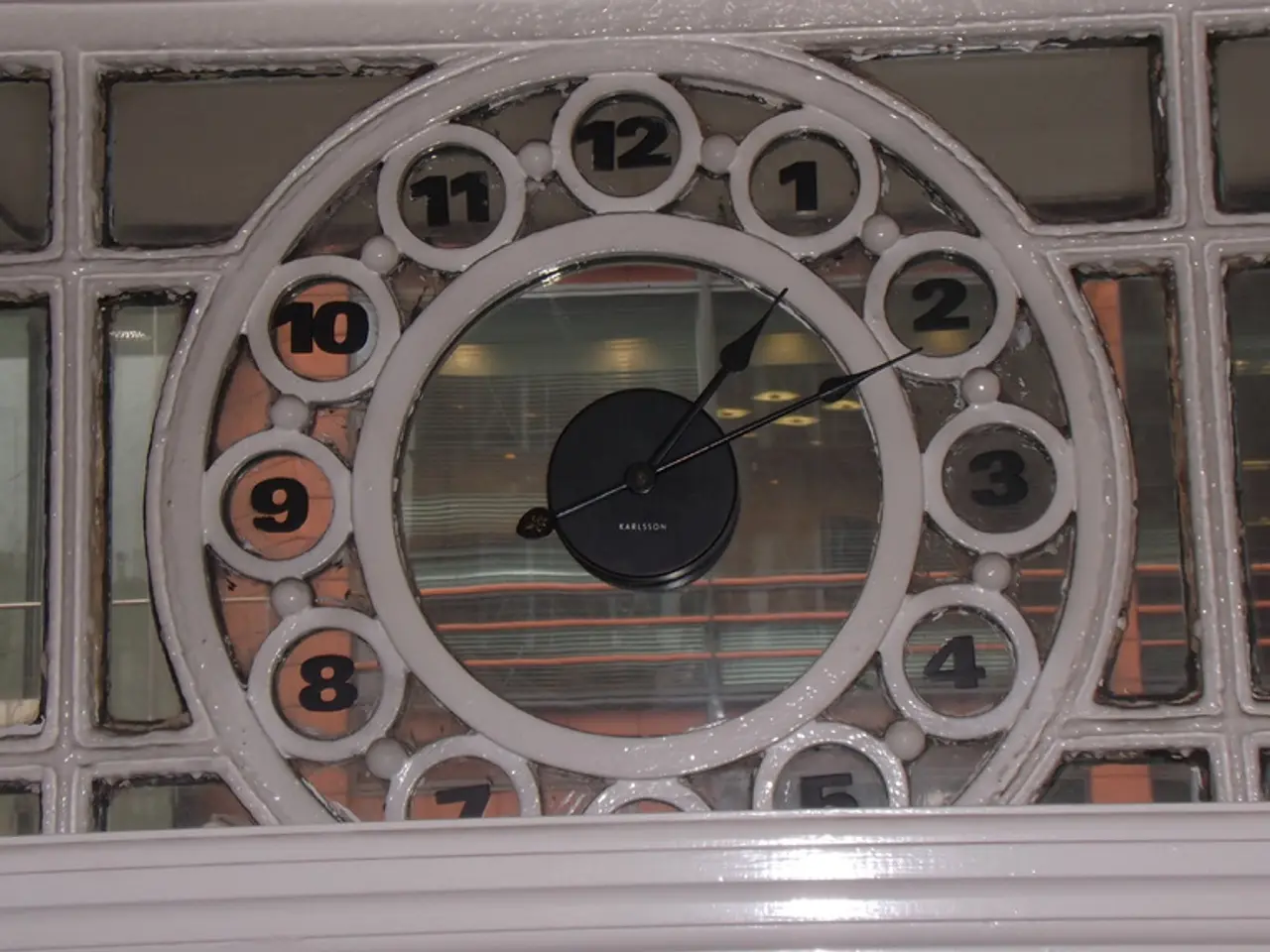Challenge for the year 2025: Creating a Clock without Silicon at a Frequency of One Hertz
Reviving Vintage Timekeeping: The Dekatron Digital Clock Project
Dekatrons, a type of cold-cathode counting tube, have found a resurgence in modern times as enthusiasts seek to build vintage digital clocks using technology that predates silicon semiconductors. These gas-filled tubes, with multiple cathodes arranged in a circle, enable digital counting and display of time without modern semiconductor logic.
In the heart of these vintage digital clocks, dekatrons serve as bi-directional decade counters, tracking seconds, minutes, and hours by counting electrical pulses from an oscillator or timing circuit. This approach, which relies on gas discharge physics and electrode switching, provides a unique and visually distinct way of counting that combines electronics with glowing cathodes.
Charles, a dedicated electronics enthusiast, is currently working on a digital clock project that aims to eschew the use of silicon semiconductors. His design relies on seven dekatrons as the basic counting elements. The first dekatron in his design will divide down the mains frequency by 5 or 6 to get down to 10 Hz. The second dekatron will step down 10 times to measure seconds, while the second will step down another 60 times to measure minutes. A final dekatron will divide by 12 to count the hours in a day.
The display for the digital clock will be Nixies, providing a visually striking contrast to the dekatrons at the heart of the clock. To further reduce the total tube count, some germanium parts may be used in the supporting hardware.
While the use of tubes still involves glass components, which are made from silicon, the appeal of these vintage clocks lies in their reliance on gas discharge technology, offering a glimpse into the past when digital timekeeping was a novel and fascinating field.
Readers are encouraged to share their own practical projects using mid-century hardware, as the revival of these vintage technologies continues to captivate enthusiasts and collectors alike.
- Charles' digital clock project maintains the spirit of mid-century hardware by utilizing dekatrons, germanium parts, and Nixie displays instead of modern silicon semiconductors and gadgets.
- The venture of constructing dekatron-based digital clocks is a testament to the ongoing fascination with vintage technology, when hardware components like dekatrons and Nixies played a significant role in the development of digital timekeeping.




